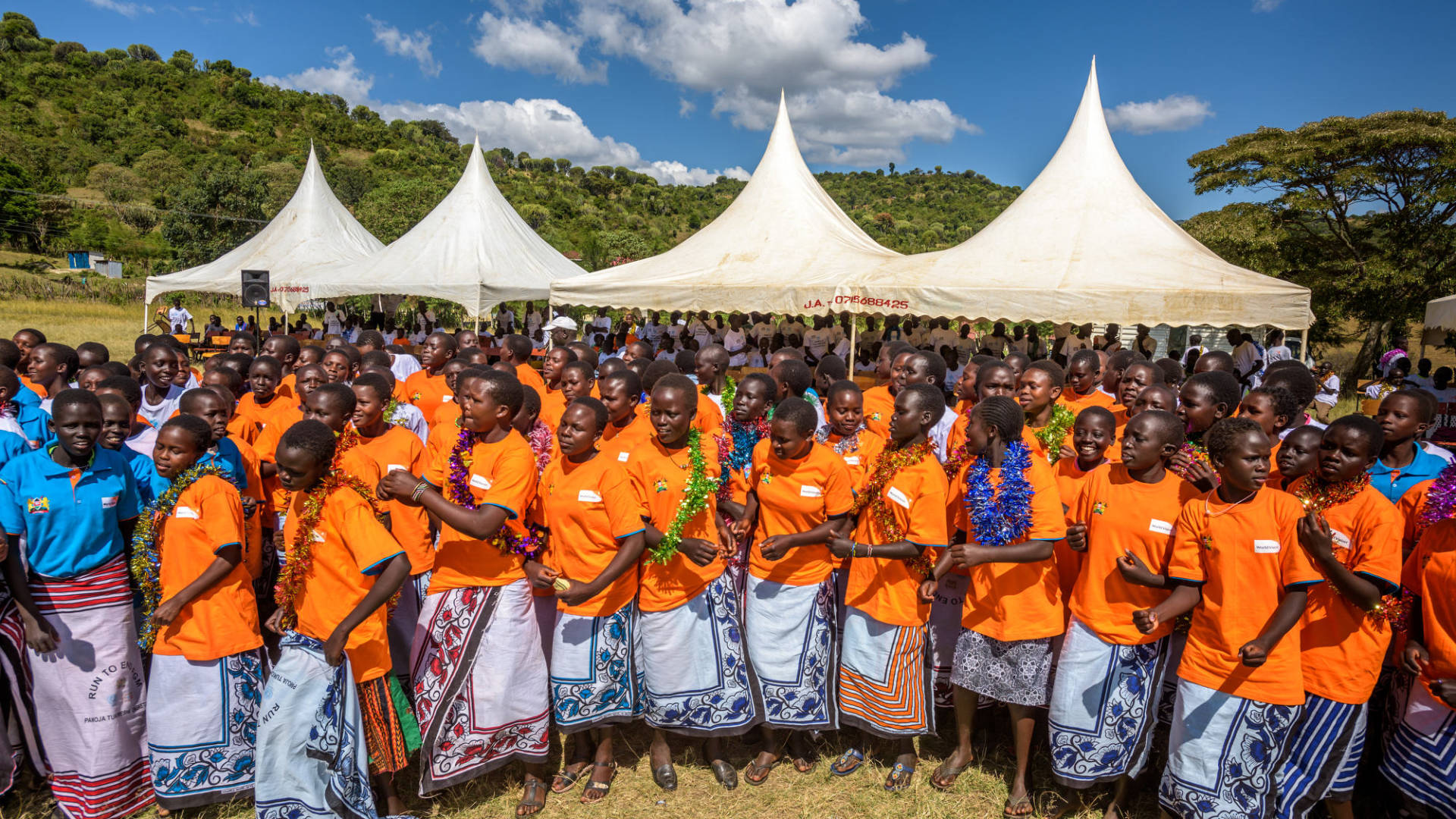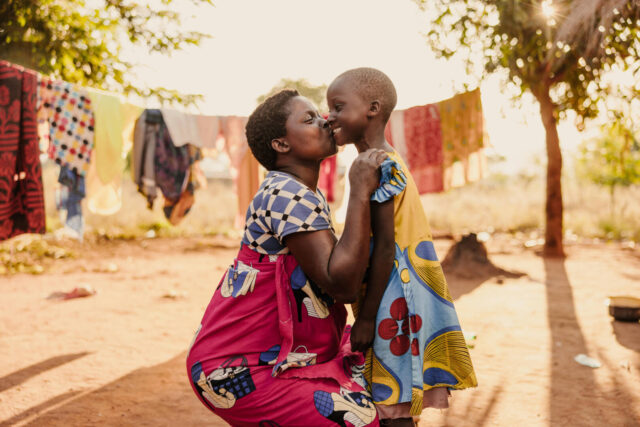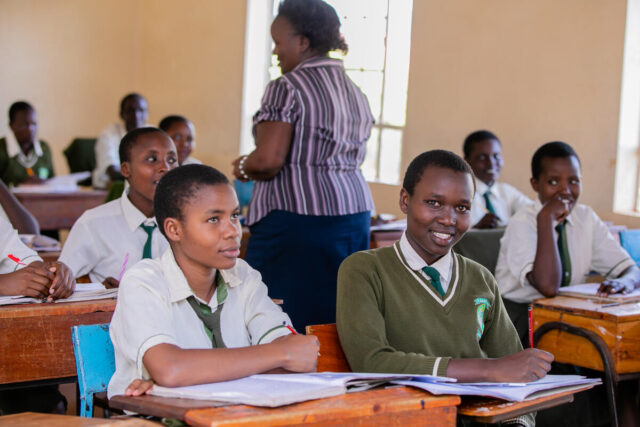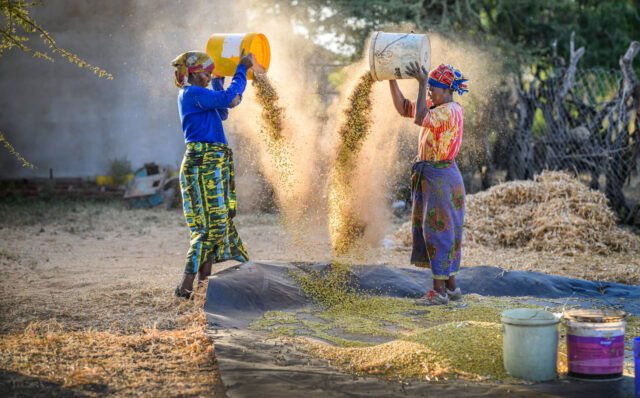Traditions are strong among the Pokot people of northwest Kenya. But one tradition — female genital mutilation (FGM), also known as cutting or female circumcision — can be deadly. It is the practice of cutting off a girl’s external genitalia for nonmedical reasons. Done with a razor blade or knife — often with no anesthesia and no disinfectant — “the cut” can cause severe pain, bleeding, and swelling that may prevent passing urine or feces.
Though the scars may heal, the horror of the event — including being physically restrained against her will — can affect a young girl for years. She often suffers from chronic pain and infections. She may be only 12 or 13, but after the cut she’s considered ready to marry. She’s offered as a wife for a bride price of goats, cows, and camels paid to her family. She and the children she may bear way too soon are at risk for birth complications because of the cut.
Despite being outlawed in 2011, girls in remote Kenyan communities are still undergoing the cut, most often during the December school holiday.
But some people are working hard to change this rite of passage. Celebrate with World Vision and the people of a Kenyan community on this International Day of Zero Tolerance for Female Genital Mutilation. Meet some of the people who are putting an end to FGM by substituting a positive rite of passage for teen girls and boys.
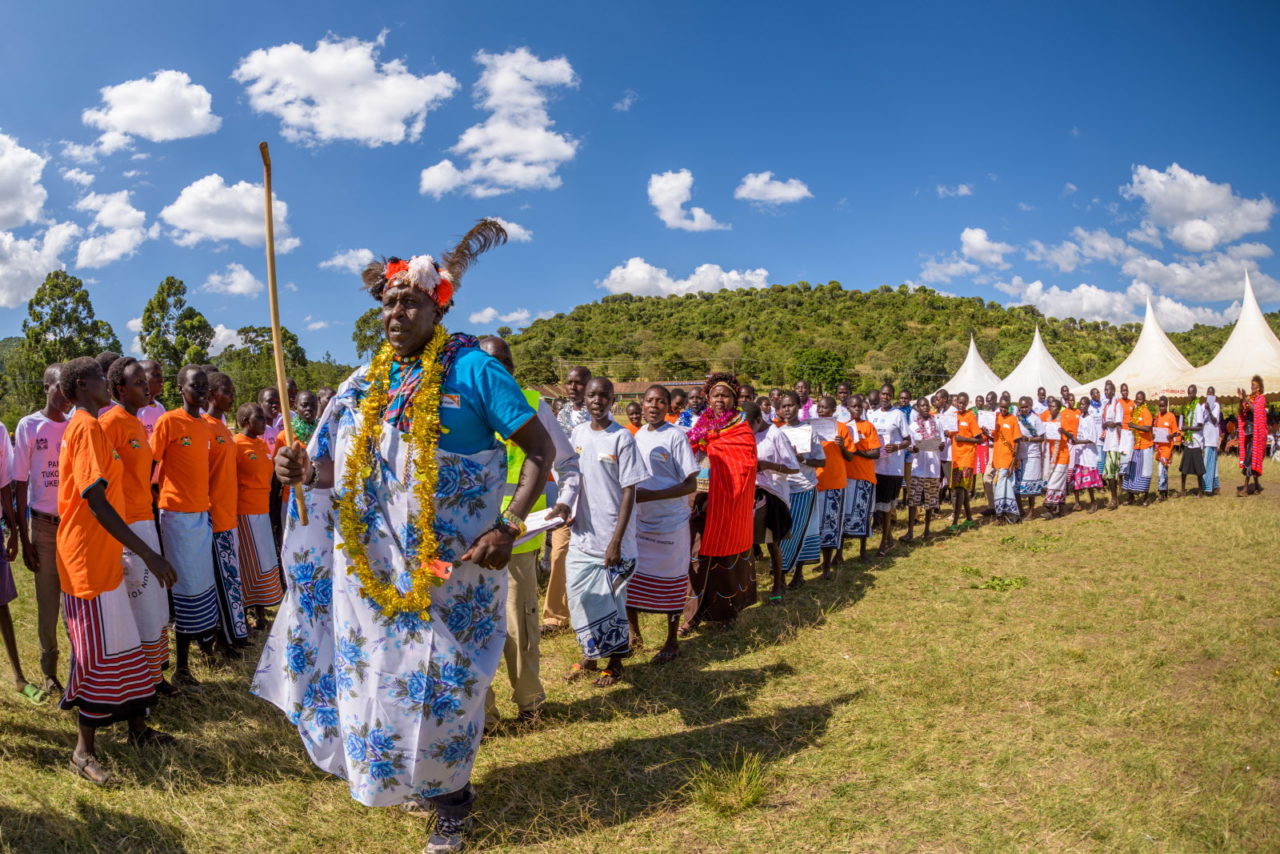 On a bright December day, songs, dances, and shouts of joy sounded from a field on St. Catherine’s Secondary School campus. The girls’ boarding school hosted 330 girls and 170 boys in Kenya’s West Pokot County. Family members, government officials, teachers, and religious leaders cheered and celebrated the teens during the Alternative Rite of Passage (ARP). (©2016 World Vision/photo by Jon Warren)
On a bright December day, songs, dances, and shouts of joy sounded from a field on St. Catherine’s Secondary School campus. The girls’ boarding school hosted 330 girls and 170 boys in Kenya’s West Pokot County. Family members, government officials, teachers, and religious leaders cheered and celebrated the teens during the Alternative Rite of Passage (ARP). (©2016 World Vision/photo by Jon Warren)
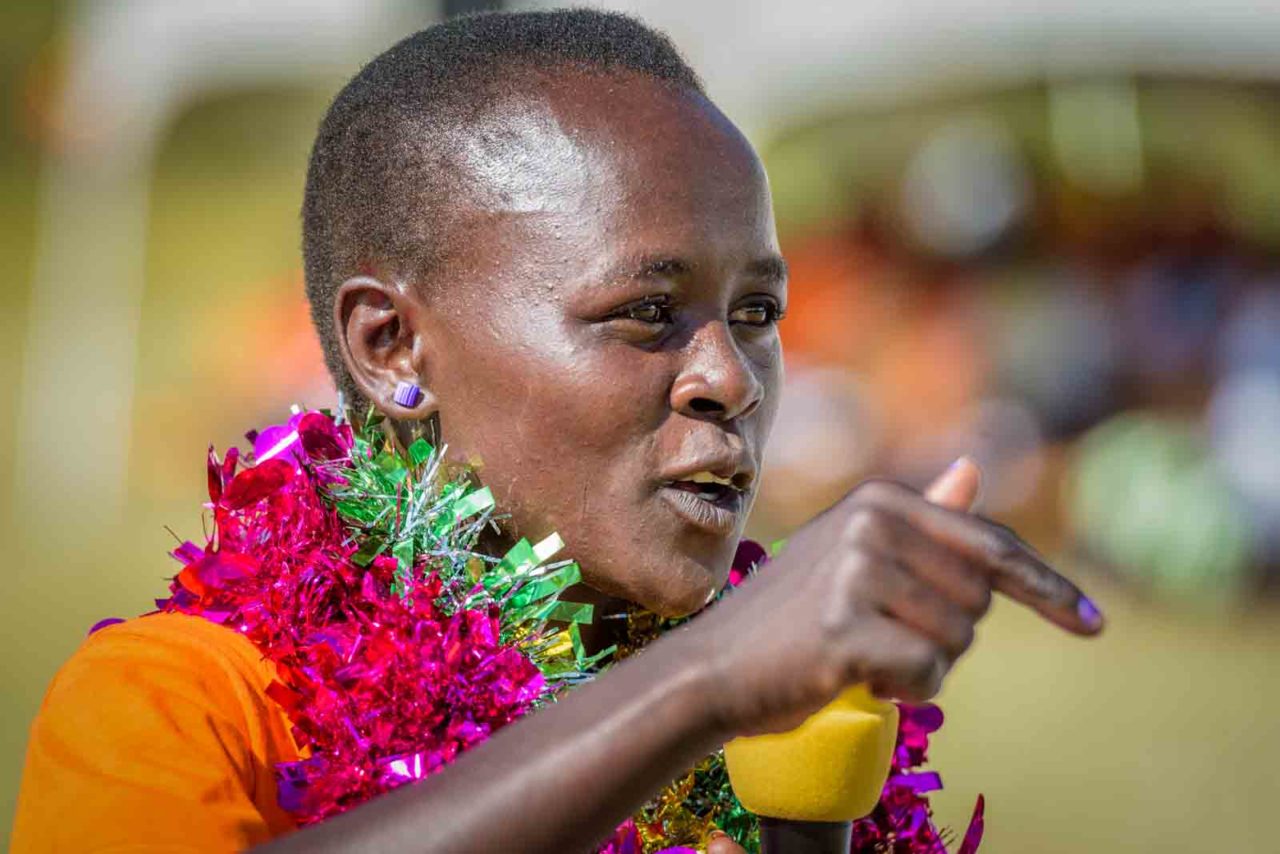 Sharon Cherop, a participant in the ARP, encouraged girls to remember their rights and what they learned at the four days of anti-FGM training. “On behalf of all girls, we will throw away FGM,” she says. “If someone tries to persuade you, don’t give in. I know where to take you so you will be safe. I know my rights. I will tell my father; I will tell World Vision. They will say ‘no, you don’t have to give in.’” (©2016 World Vision/photo by Jon Warren)
Sharon Cherop, a participant in the ARP, encouraged girls to remember their rights and what they learned at the four days of anti-FGM training. “On behalf of all girls, we will throw away FGM,” she says. “If someone tries to persuade you, don’t give in. I know where to take you so you will be safe. I know my rights. I will tell my father; I will tell World Vision. They will say ‘no, you don’t have to give in.’” (©2016 World Vision/photo by Jon Warren)
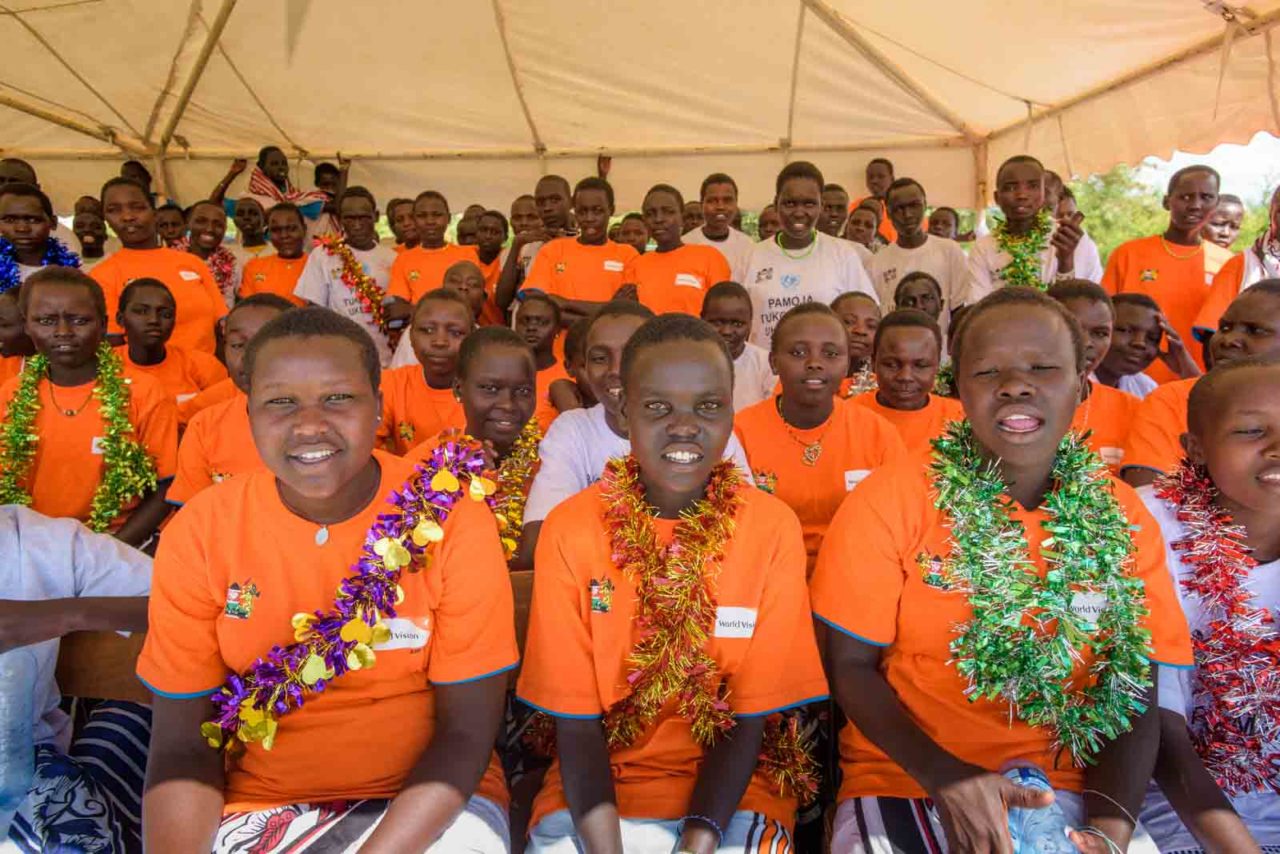 “You should not undergo pain without gain,” the teens chant along with a school principal and biology teacher, who taught them about the health effects of FGM. “Don’t mar God’s creation with FGM,” he says. “God has made boys and girls the way he wants them to be.” (©2016 World Vision/photo by Jon Warren)
“You should not undergo pain without gain,” the teens chant along with a school principal and biology teacher, who taught them about the health effects of FGM. “Don’t mar God’s creation with FGM,” he says. “God has made boys and girls the way he wants them to be.” (©2016 World Vision/photo by Jon Warren)
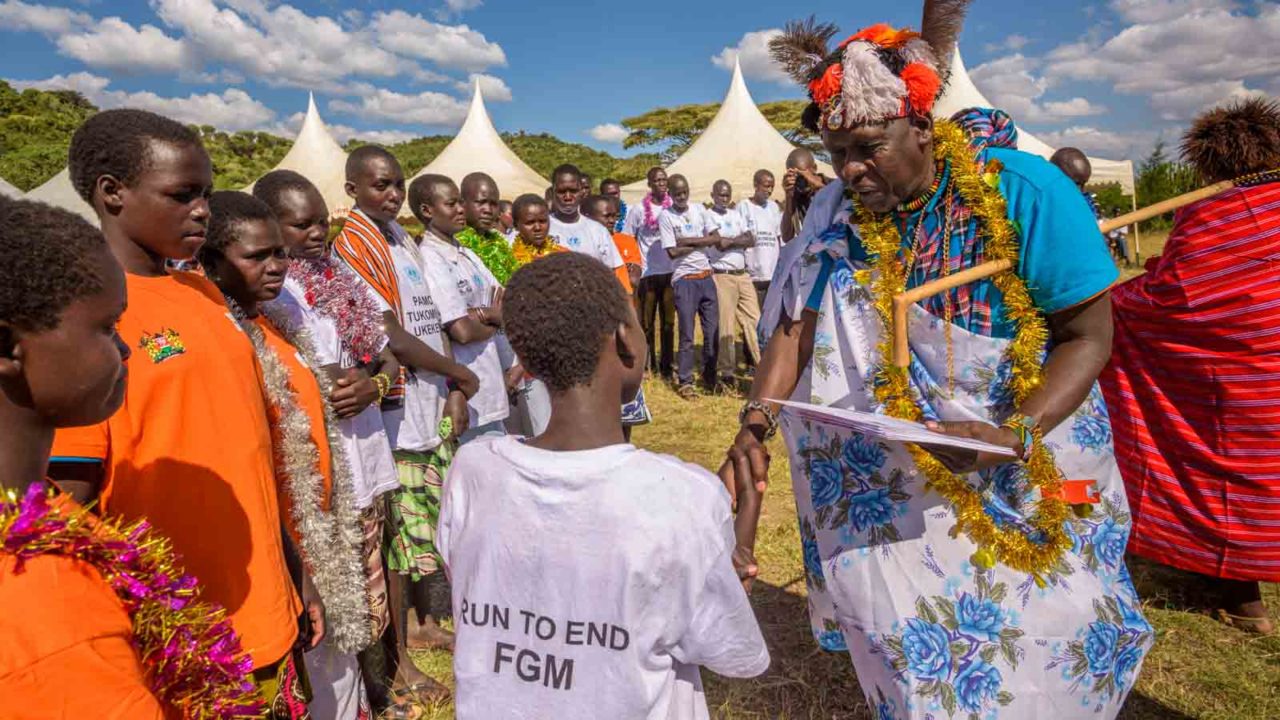 Graduates of the ARP receive certificates and congratulations from “Papa Culture,” William Lopetakou. A community elder and cultural ambassador of the Pokot people, he teaches teens that respect for their culture doesn’t mean they must follow harmful cultural practices like FGM. “When culture holds you back and causes pain, we throw it away,” he says. (©2016 World Vision/photo by Jon Warren)
Graduates of the ARP receive certificates and congratulations from “Papa Culture,” William Lopetakou. A community elder and cultural ambassador of the Pokot people, he teaches teens that respect for their culture doesn’t mean they must follow harmful cultural practices like FGM. “When culture holds you back and causes pain, we throw it away,” he says. (©2016 World Vision/photo by Jon Warren)
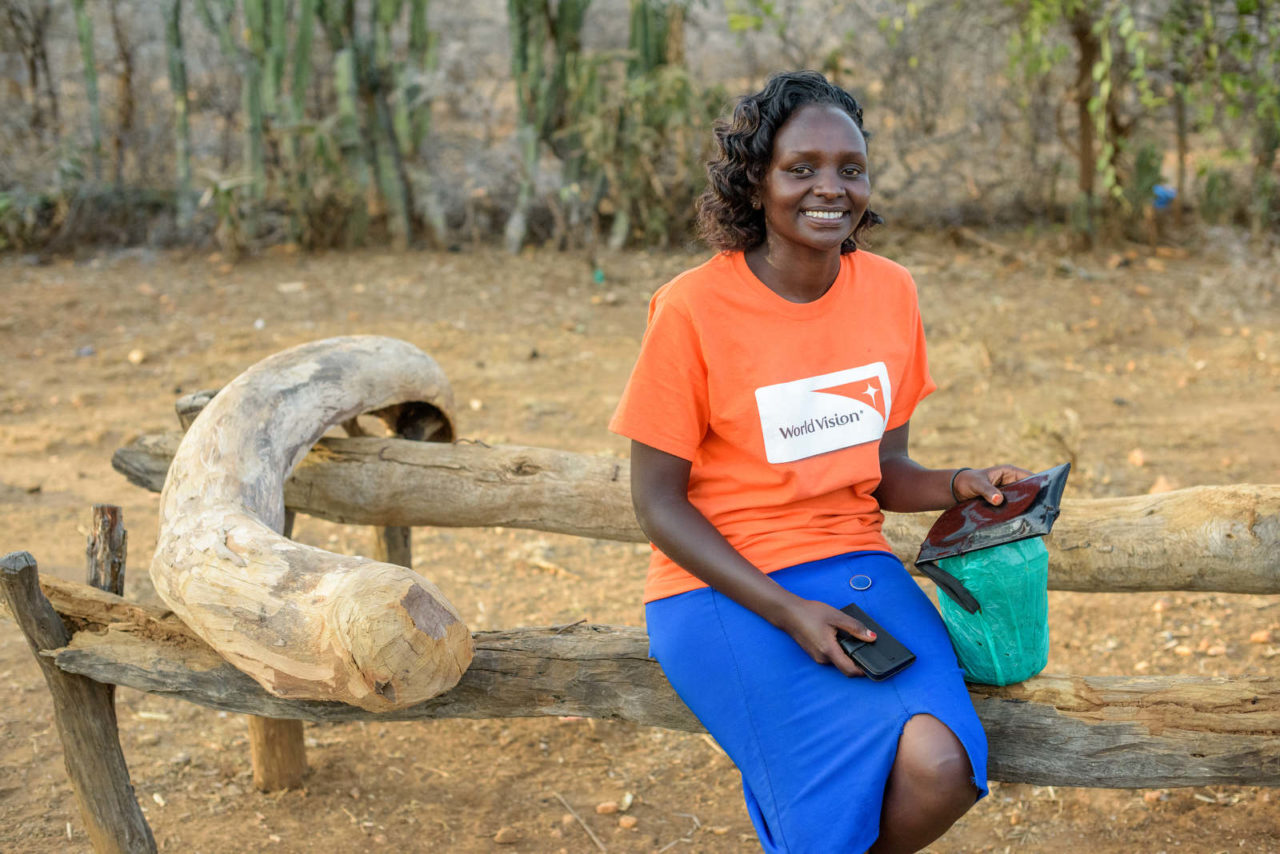 As a teenager, Teresa Cheptoo ran away from home to avoid FGM. World Vision supported her to attend the first ARP in 2007 and to continue her education. Now she has joined World Vision as the ARP program manager. “There were only 20 of us girls when I went through the ARP in 2007,” she says. “At the event, there were no elders, chiefs, government officials, and only one pastor.” Teresa says while much has improved, FGM is still a threat. (©2016 World Vision/photo by Jon Warren)
As a teenager, Teresa Cheptoo ran away from home to avoid FGM. World Vision supported her to attend the first ARP in 2007 and to continue her education. Now she has joined World Vision as the ARP program manager. “There were only 20 of us girls when I went through the ARP in 2007,” she says. “At the event, there were no elders, chiefs, government officials, and only one pastor.” Teresa says while much has improved, FGM is still a threat. (©2016 World Vision/photo by Jon Warren)
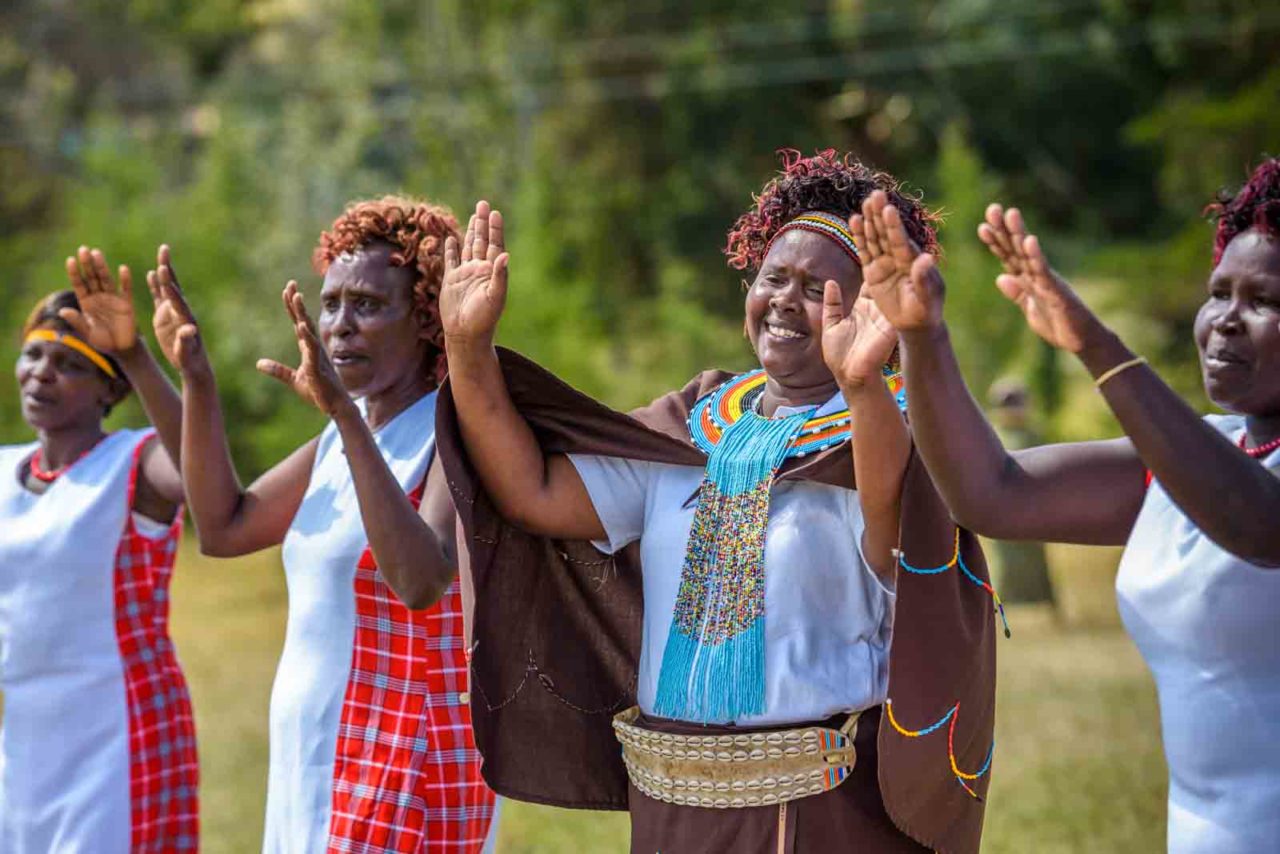 Gladys Koyet (brown cape), headmistress of St. Catherine’s Secondary School where the program was held, joins local musicians and civic leaders to celebrate graduates of the anti-FGM program. Because the ARP is held in December, the school is a safe haven for girls who might be pressured to undergo FGM at home during the long Christmas holiday. (©2016 World Vision/photo by Jon Warren)
Gladys Koyet (brown cape), headmistress of St. Catherine’s Secondary School where the program was held, joins local musicians and civic leaders to celebrate graduates of the anti-FGM program. Because the ARP is held in December, the school is a safe haven for girls who might be pressured to undergo FGM at home during the long Christmas holiday. (©2016 World Vision/photo by Jon Warren)
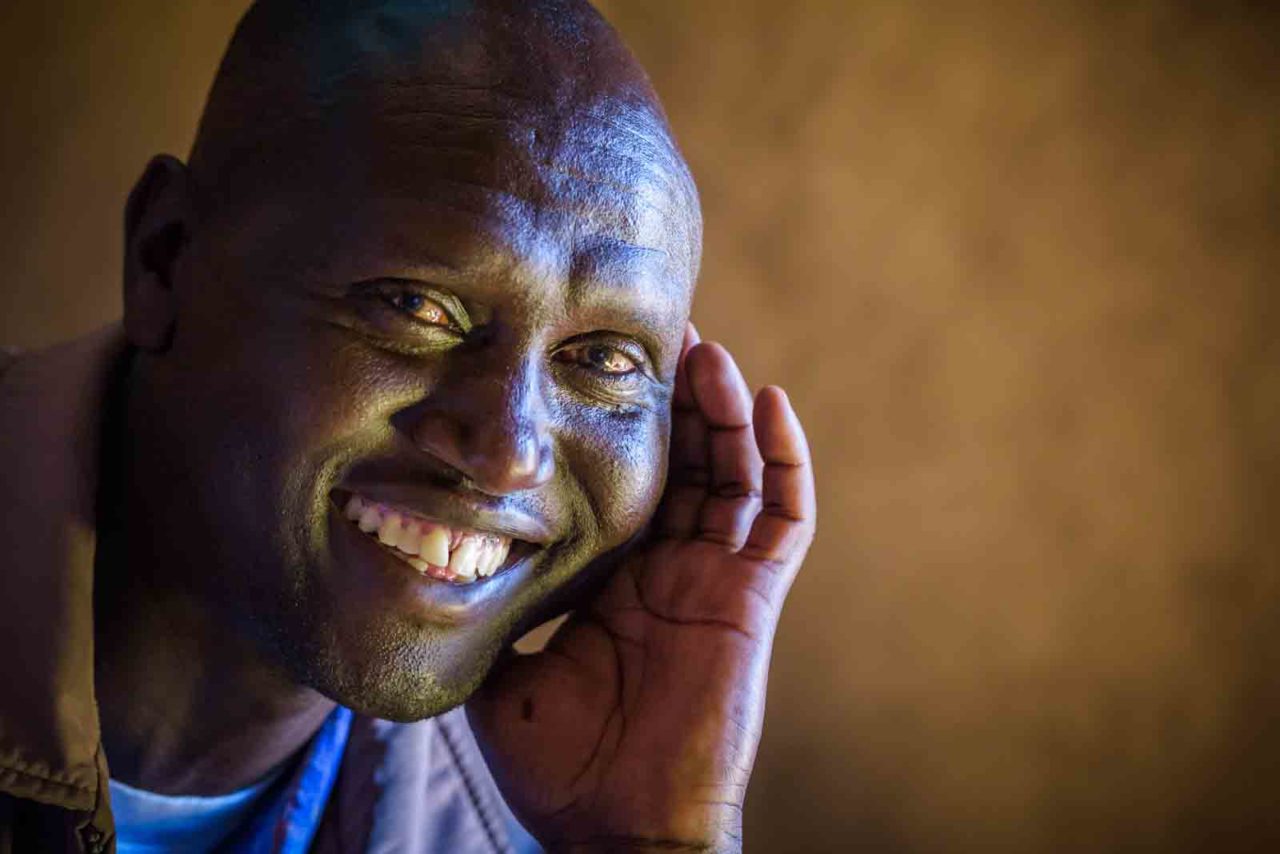 Chief Samuel Chemonorey, the leader of West Pokot County’s Ptoyo location, is a “child rights crusader” who works to stop FGM, say World Vision staff. Several years ago, he was beaten and his leg broken when he tried to protect one young girl who had run away from home to avoid undergoing FGM. About 100 girls and boys from his location graduated at the ARP in December. (©2016 World Vision/photo by Jon Warren)
Chief Samuel Chemonorey, the leader of West Pokot County’s Ptoyo location, is a “child rights crusader” who works to stop FGM, say World Vision staff. Several years ago, he was beaten and his leg broken when he tried to protect one young girl who had run away from home to avoid undergoing FGM. About 100 girls and boys from his location graduated at the ARP in December. (©2016 World Vision/photo by Jon Warren)
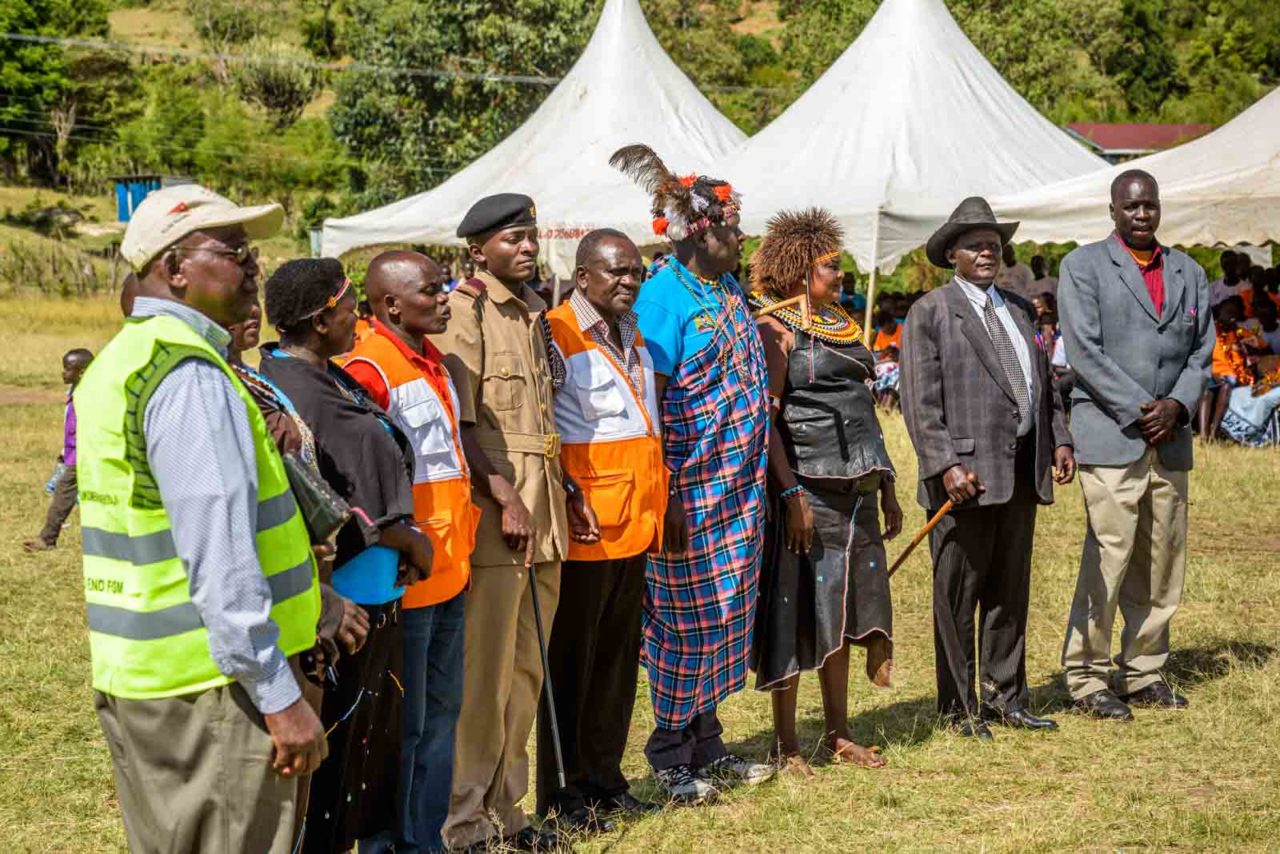 Papa and Mama Culture, flanked by community leaders and dignitaries, encourage ARP graduates and the audience to end FGM. Titus Kaprom, West Pokot manager, and Ken Lemunyang, Sook area program manager, represent World Vision. Titus encourages teens to stay in school so they can come back to be the teachers, doctors, pastors, and business leaders their communities need. (©2016 World Vision/photo by Jon Warren)
Papa and Mama Culture, flanked by community leaders and dignitaries, encourage ARP graduates and the audience to end FGM. Titus Kaprom, West Pokot manager, and Ken Lemunyang, Sook area program manager, represent World Vision. Titus encourages teens to stay in school so they can come back to be the teachers, doctors, pastors, and business leaders their communities need. (©2016 World Vision/photo by Jon Warren)
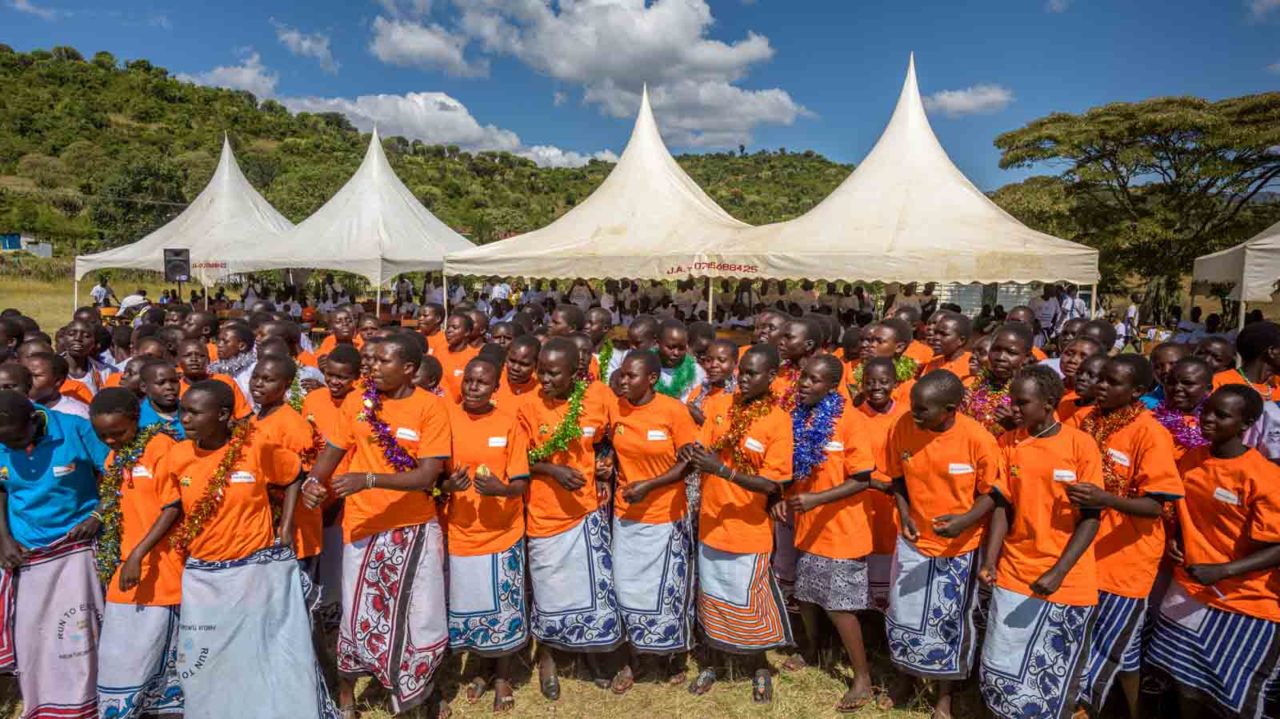 Mama Culture (in black) leads teens in a dance to celebrate their graduation at the ARP. They’ve learned about the harmful physical and mental effects of FGM, their right to avoid it, and how to get help. They’ve also learned about the biblical basis for rights and respect for others. (©2016 World Vision/photo by Jon Warren)
Mama Culture (in black) leads teens in a dance to celebrate their graduation at the ARP. They’ve learned about the harmful physical and mental effects of FGM, their right to avoid it, and how to get help. They’ve also learned about the biblical basis for rights and respect for others. (©2016 World Vision/photo by Jon Warren)
